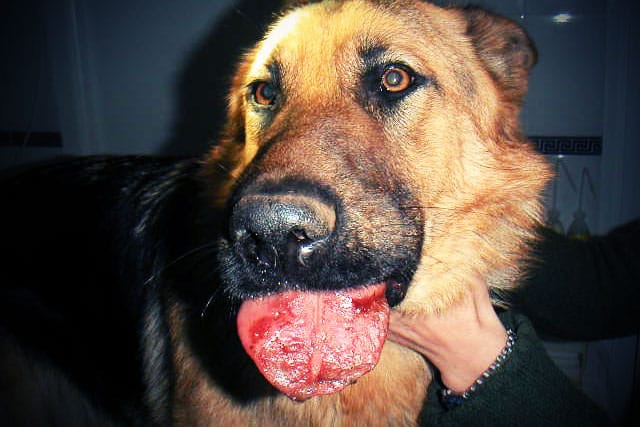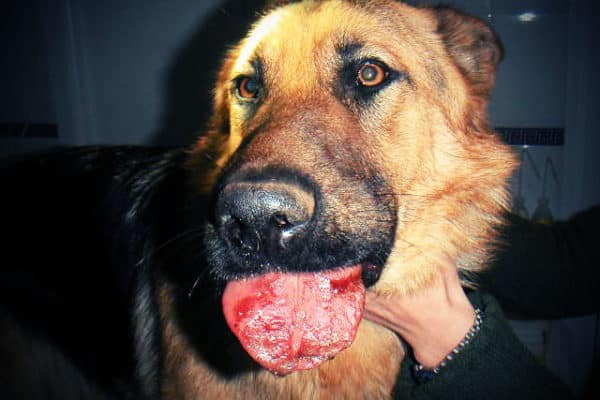Last weekend María Vicenta had to rush her dog to the emergency room of a Veterinary Hospital in Murcia after seeing the animal had suck in a processionary caterpillar while walking through the town.
“I was really scared,” says the owner of the animal, who adds that she does not understand how these caterpillars can be so prevalent in urban areas.
Despite quickly washing the dog’s mouth and treating her, she explains that “the dog is losing it’s tongue, the tissue is rotting and it is falling into pieces due to the processionary toxin.”
José Ignacio Álvaro, one of the staff who works at the Veterinary Hospital of La Flota, said that “the processionary caterpillar is also dangerous for people, especially small children, and of course for animals because they find the caterpillar funny as it crawls along,” and they play with it and suck it, which causes their tongues to become necrotic”.
When an animal arrives at ta veterinary hospital in this situation, the first thing the specialists do is clean the area and apply an antibiotic and analgesic, reducing the inflammation with corticosteroids.
“We have had cases of dogs that have lost part of their tongue, animals that we have had to sedate to clean out dead tissue and that have to be fed with liquid or through a tube while they recover,” he says.
In many cases, specialists start treatment without knowing what the result will be, since “if the animal ingests the caterpillar, the damage goes beyond the mouth, affecting the esophagus and causing a hole in the stomach, with the animal inevitably dying”, so owners must be extremely careful in wooded or pine forest areas.






